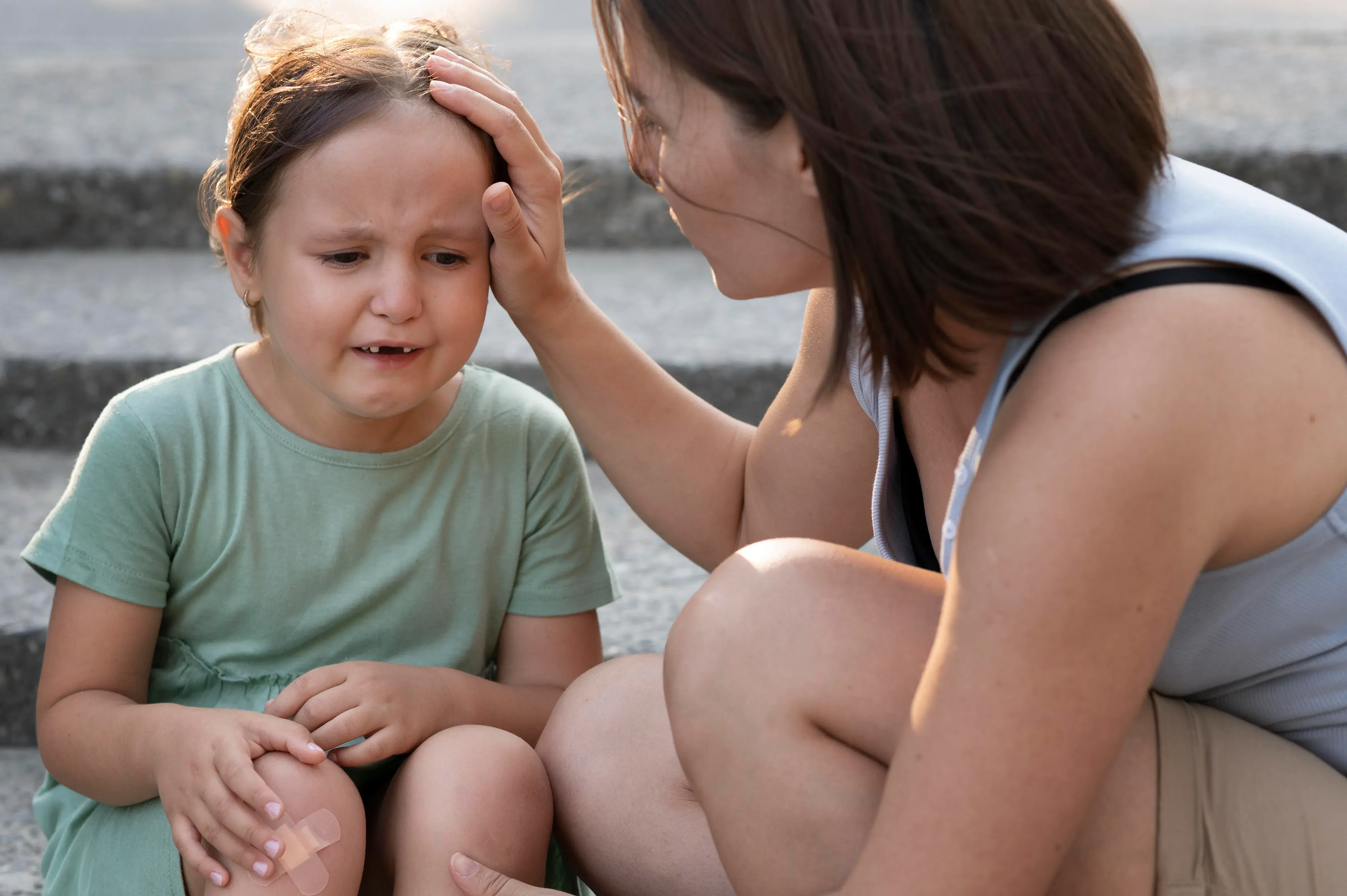The One Thing That Transformed My 3-Year-Old’s Behavior: A Parent’s Story
 By
Mellow Editorial Team
·
3 minute read
By
Mellow Editorial Team
·
3 minute read

Over the past few months, bedtime had become a constant struggle in our household. My husband and I were working longer hours, often distracted and exhausted, leading us to slack on our daughter's bedtime routine. Little by little, her bedtime crept later and later, until it was nearly around 9-10 PM. Initially, we attributed her worsening behavior to a lack of boundaries. We attempted to set stricter rules and enforce a more rigid environment during bedtime, but this approach backfired entirely. It became clear that without a solid foundation for good sleep, no amount of discipline would solve the problem.
During the day, our daughter struggled with self-regulation. She had frequent tantrums over the smallest frustrations—whether it was struggling to complete a puzzle, resisting a change of clothes, or refusing to brush her teeth. These daily challenges left both of us on edge, and our home environment grew increasingly stressful.
Nights were even worse. She began experiencing night terrors, waking up crying two to three times each night and having meltdowns that could last up to 40 minutes. Night terrors typically occur in the first half of the night, during deep sleep, and are characterized by sudden, intense crying and fear without fully waking up.
This prompted me to dive deeper into research on the connection between sleep and behavior, particularly focusing on bedtime and its impact on children’s daytime behavior and emotional regulation. The findings were eye-opening: over time, the harmful effects of a late bedtime only worsen. Here’s what I discovered:
The Power of an Earlier Bedtime: Key Insights
1. Bedtime and Sleep Onset:
Research shows that putting children to bed earlier, in alignment with their natural sleep onset times, helps them fall asleep more easily. This is because the body’s circadian rhythm is more conducive to sleep during certain hours, typically earlier in the evening for young children. Aligning bedtime with this natural rhythm can lead to quicker sleep onset and better sleep quality.
2. Self-Regulation and Behavior:
Adequate sleep is crucial for developing self-regulation skills. Dr. Marc Weissbluth's research suggests that children who get sufficient sleep are better at managing their emotions, handling challenges, and exhibiting positive social behaviors. Children with earlier bedtimes are more likely to be sociable, cooperative, and adaptable, making them more resilient in difficult situations.
3. Improved Social and Emotional Functioning:
An earlier bedtime is also associated with improved social interactions and reduced behavioral problems. Children who consistently get enough sleep tend to be more patient, less irritable, and more capable of engaging positively with their peers.
Specific Research Highlights
- The Impact of Sleep on Behavior: Dr. Weissbluth references studies indicating that children who sleep earlier and better are more likely to behave well and engage positively with others. Earlier bedtimes contribute to better mood regulation, fewer temper tantrums, and an increased willingness to share and cooperate.
- Irregular Bedtimes and Behavioral Issues: A study by Dr. Yvonne Kelly found that children with irregular bedtimes displayed worse behavior. The longer this pattern persisted, the more severe the behavioral difficulties became, significantly impacting a child’s social and academic success.
- Sleep and ADHD: Research on over 42,000 children revealed that irregular or late bedtimes at age 2 predicted ADHD symptoms by age 8, highlighting the undeniable link between poor sleep and ADHD.
- Sleep Deprivation’s Emotional Toll: Experimental studies showed that just 54 minutes of sleep loss over a few nights led to increased irritability and impulsivity in young children. Over time, this sleep deprivation compounds, putting children at risk for emotional instability and social difficulties.
The One Change That Worked Like Magic
Promoting an earlier bedtime that aligns with my child’s natural sleep onset made all the difference. It helped her achieve more restful sleep, which in turn improved her self-regulation, social interactions, and overall behavior. Bedtime routines became smoother, creating a more positive and nurturing environment for everyone.
It took patience and several weeks of experimenting to adjust her biological clock. We initially observed that she was able to fall asleep more easily after 9 PM. However, because she had to wake up early for school, she wasn’t getting enough sleep. Despite longer naps during the day, the fussiness and night terrors continued.
We started gradually shifting her bedtime 15 minutes earlier every other day while maintaining a consistent routine. Eventually, we reached a point where she couldn’t fall asleep any earlier due to her total daytime sleep/awake ratio, yet she still struggled to wake up naturally in the morning—a sign that she needed more sleep or an earlier bedtime. We began capping her naps to ensure she had the right amount of daytime sleep for her age.
Finally, when her bedtime was consistently around 7 PM, the issues almost completely disappeared. She fell asleep quickly, often within 15-20 minutes, and the night terrors stopped. She began waking up naturally, fully rested and happy. Her mood improved, and she became more sociable, playful, and resilient. The intense and frequent tantrums she used to have during the day reduced significantly, now happening only once every few weeks, and even then, usually only when she was starting to get tired.
The difference was astounding—by simply correcting her sleep schedule, she transformed from a frustrated, irritable child into the sweetest, most playful little girl.
I cannot stress enough the importance of an early bedtime for our little ones. I hope this story provides insights that can help you improve your own routines.
If you’re interested in learning more about the research behind these findings, I highly recommend Dr. Marc Weissbluth's book, "Healthy Sleep Habits, Happy Child," which offers a comprehensive overview of the science of sleep.